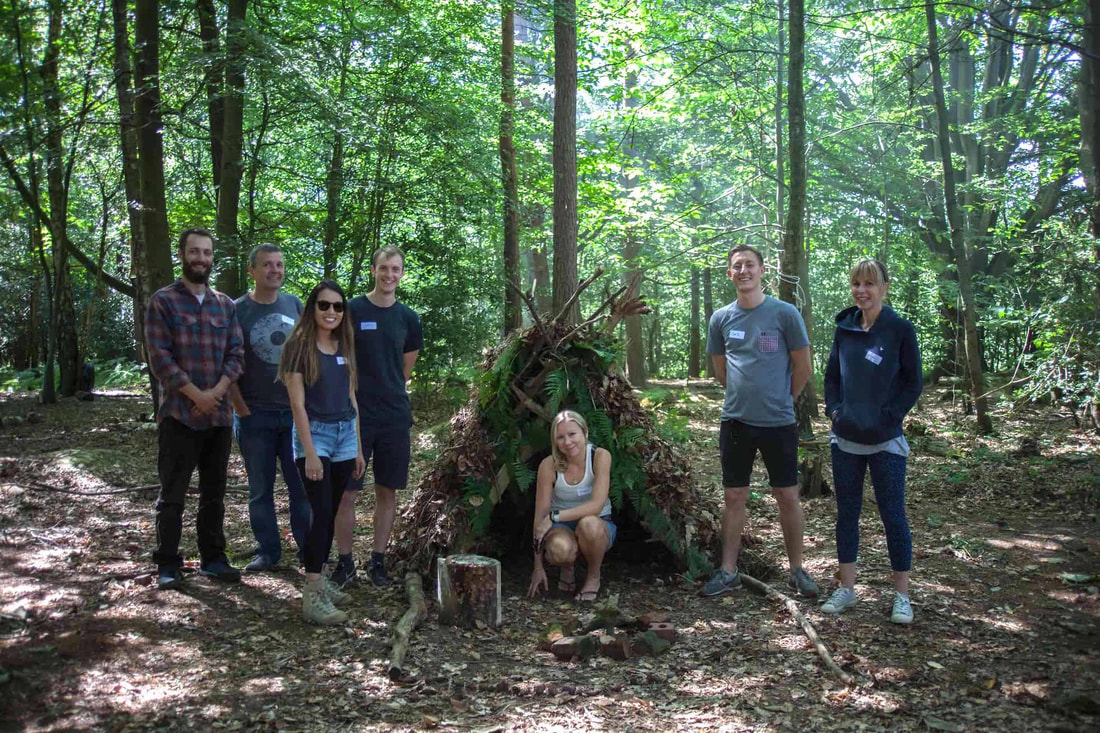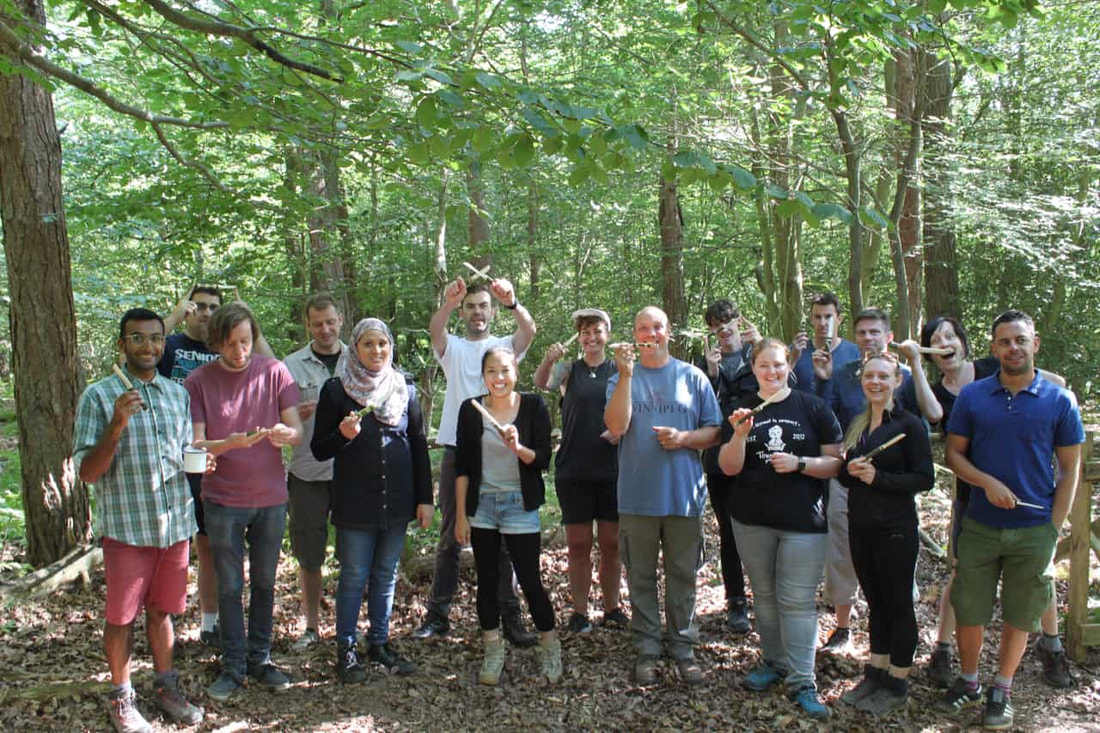Why team building is important
First things first - why do any structured team building at all? As a leader there are so many day-to-day pressures, that having time out of the office with your team might seem like a luxury you can ill afford.
But what happens if you don't invest in your team, take time to improve social relations, resolve workplace tensions, and build a forward-thinking culture? The answer: your team may suffer from a lack of progress, poor productivity or conflicts, all of which can lead to under-performance as a whole. As a leader it’s your job to resolve these issues as quickly as possible. If you don’t, you may find your staff leave you for a competitor, as a recent survey by LinkedIn shows: 70% of professionals would not work at a leading company if it meant they had to tolerate a bad workplace culture. For today’s workforce, culture reigns supreme, and as Peter Drucker said “culture eats strategy for breakfast” ie it’s good for the business too. Read on to discover why heading outdoors into nature is one of the most effective ways of achieving your team building goals and is a vital part of any HR strategy. 8 Reasons Why Team Building in Nature is More Effective
1. Create Team Bonds that Last
Yes, team building is about having fun together and identifying strengths and weaknesses. However to build trust and real bonds between colleagues requires empathy, connection, and sharing a meaningful experience that brings everyone together. Being outside is proven to help you disconnect from technology and reconnect with team members on a more personal, human level. You’ll see each other through a different lens, and build stronger bonds that take years to build in the office, creating benefits that last. “It was really special for us to reconnect with each other in and through nature... A palpable sense of calm and togetherness which is still with us.” Julie Hirigoyen, UK Green Building Council 2. Turn Your Team into a Community According to American social psychologist Christina Maslach, a healthy community is necessary to mediate the stresses of work: "People thrive in community and function best when they share praise, comfort, happiness, and humor with people they like and respect”. Time in nature has been shown to reduce prejudices around race, gender, status, education - meaning people build community faster. And studies have confirmed that exposure to nature in this way leads to a reduction in unhelpful behaviour and more group cohesion. “We made a lot of progress with building group cohesion in a short time. We could have done a lot of conventional meetings without getting so far.” Alan Rae, Southampton Business School 3. The Best Meeting Room Ever One of the foundations of a high-performing team is being able to have honest conversations and impassioned debate without avoiding them for fear of conflict or being shot down. Away from your usual environment, unrestricted by four walls, the outdoors helps to create a safe space where there are none of the usual barriers and hierarchies that exist in the workplace. Sitting around a campfire with colleagues provides such a contrast to your usual everyday interactions, that it has an immediate, powerful levelling effect across all job functions, so it’s possible to have honest and authentic conversations in a more relaxed way, and helps to create alignment around common goals. “Being outside has an immediate impact. I notice how we all think and behave more-than-slightly differently. There’s an openness to the conversations, less boundaries, and lots of trust.” Neil Pavel, Business Coach 4. Solve Problems Together Many team building events tempt you with plush surroundings, fancy catering options or high tech fast-paced games using smart phones and iPads. But does that actually play any role in boosting creative thinking or coming at problems in a new way? Often there’s no opportunity for reflection - to take what you learn and apply it to your situation, plus the surroundings may not be drastically different to your normal office and most of us spend all day using technology and looking at screens. Getting into nature, on the other hand, is proven to boost creative thinking by as much as 50%. Away from electronic distractions could provide just the spark you need to overcome a difficult challenge. “The wild workshop enabled us to think in ways that would never have happened in a standard meeting room.” Nick Hillier, Academy of Medical Sciences 5. Get Buy-in From Everyone Are you struggling with a particular strategic problem that you just can't seem to crack? Perhaps it's working out how to launch a new product, move into a new market, or create a new organisational structure that will boost progress. For teams to work really well requires commitment from everyone to decisions, so getting input from all of your team and bringing them along with you may be the missing ingredient - then it won’t just feel top down. Not to mention that engagement and motivation all follow from unfettered conversation, where people feel valued and heard, and can contribute ideas and strategy. Sitting around a campfire with colleagues is a powerful way to create a space where a facilitated conversation can lead to more alignment, and get the buy-in you need. “Being in the woods, without walls and in a natural environment gave us a new energy and sense of purpose.” Emma Slawinski, Compassion in World Farming 6. Be More Productive If you're looking for ways to improve your team’s productivity, time spent in nature has a whole host of benefits that will help you to work better. Better memory, greater concentration, sharper thinking, stress relief and more energy are some of the reported scientific benefits for team performance of spending time amongst the birds and the bees. The positive effects of that can be applied to projects you're working on back in the office. “Stillness, reflection and then inspiration from nature - all rare things in the craziness of the day-to-day.” Dr. Fiona McNae, Space Doctors 7. Improve Workplace Culture As noted, culture reigns supreme for today’s talented employees. The good news is that spending time in nature has a powerful effect on the culture in your organisation. Studies show that exposure to nature improves social behaviour and relationships by making you more likely to notice when others need help – and to provide that help. Nature strengthens employees’ values, leading to greater harmony and connection. Exposure to nature doesn’t just make you feel and think better, it also makes you behave better. For example, researchers at the University of Rochester found that exposure to nature makes you more generous and willing to share with others. Back in the office you'll work together better and do better work.
8. Make More of a Difference
In the face of the current climate emergency, many businesses are reevaluating their corporate social responsibility (CSR) programmes. If you’re looking to develop a new CSR strategy, reconnect with your purpose, or find ways to lower the carbon footprint of your organisation, a day spent in nature is a great place to start to address these challenges. In our 24-hour ‘always-on’ world of technology, offices and screens, disconnectedness from nature is pervasive. How can you expect your team to understand how and why they should commit to taking more responsibility for the impacts of your business unless they feel more connected to the world and their place within it? “At a time when business as usual is no longer sustainable, this time gave us valuable distance and the headspace and perspective to reevaluate what we do, for tomorrow.” Dr. Fiona McNae, Space Doctors
Let Us Help You
School of the Wild combines meaningful team building with unique strategy days for corporates, companies and organisations in the woods and wild spaces of London, Brighton, and Sussex. Read more here. Words by Lauren Psyk. Comments are closed.
|
Author & CuratorNigel Berman is the founder of School of the Wild. Archives
March 2024
|
Leaders |
About Us
Support |
|





 RSS Feed
RSS Feed



